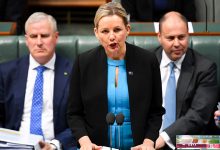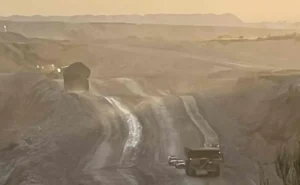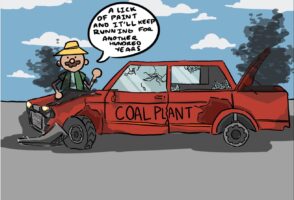Federal environment minister Sussan Ley will use a statutory review of the Environmental Protection and Biodiversity Conservation Act (EPBC Act) to revive a campaign against ‘green tape’ and ‘environmental lawfare’, ignoring the calls from hundreds of scientists to focus on the looming species extinction crisis.
Ley has appointed former ACCC chief Graeme Samuel to head the review into the EPBC Act and has said that the practice of the EPBC Act being used as the basis for legal challenges to development proposals, particularly coal mining projects, needs to end.
It ignores the calls from a group of 248 environmental scientists, who wrote to the environment minister in October, and stressed the urgency to consider the current threats to the environment, and the threats being posed to many threatened species.
“Sadly, our work also tells us Australia is amid an extinction crisis. We are documenting a rapid decline in the overall numbers of species and the overall diversity of wildlife across the land, rivers and seas of our country. Australia’s native species are disappearing at an alarming rate,” the letter from scientists said.
“While there are already more than 1800 plants and animals that are formally listed as threatened with extinction, it’s clear this is an underestimate. In reality, many more face extinction. Our extinction crisis is primarily a result of habitat destruction, invasive species, altered fire regimes, disease and climate change damage.”
In their joint letter, the scientists pleaded with he environment minister to use the statutory review of the EPBC Act as an opportunity to strengthen the laws and work to avoid a looming extinction crisis threatening Australian species and biodiversity.
“A review of our national environment laws is imminent. Your government has a once-in-a-decade opportunity to demonstrate national leadership and fix our laws in order to protect and restore nature across Australia. We urge you to embrace this opportunity, strengthen our laws, invest in nature and build a great legacy by ending our extinction crisis,” the scientists pleaded.
Instead, when Ley announced the review, she said the priority of the review was to “tackle green tape and deliver greater certainty to business groups, farmers and environmental organisations”.
In reality, this means the outcome of the review is likely to be a set of recommendations and ways to make life easier for big business and to stymie legal challenges, a fact the environment minister was happy to acknowledge.
“The one thing all sides of the environmental debate concede is that the complexities of the Act are leading to unnecessary delays in reaching decisions and to an increased focus on process rather than outcomes,” the minister said in a statement.
“Delays in EPBC decisions are estimated to cost the economy around $300 million a year and frustrate both business and environmental groups.”
The environment minister expanded upon this in a piece written for the Australian Financial Review, where Ley singled out the need to limit ‘environmental lawfare’ as one of the key targets for the review.
Several prominent mining projects have faced legal challenges based on the EPBC legislation, including the Adani Carmichael coal mine where legal challenges forced the federal government to review and remake environmental approvals after the court found the government’s assessments lacking.
“The lawfare that is such a part of today’s environmental landscape can be crippling to business as well as to environmental organisations,” the minister wrote
“In the past four years, 1,401 days have been spent on court cases over applications, including before the Federal Court and even the High Court.”
The decision to focus the EPBC Act on weakening the ability for organisations to run legal challenges to developments harks back to Abbott era attempts to debilitate environmental opposition.
Following the approval of the Adani Carmichael coal mine, proponents pushing additional coal developments in Queensland are now lining up to get their own projects approved, in what many have described as a “carbon bomb“.
This includes Clive Palmer, who has sought approval for a massively expanded mine proposal for the Galilee basin, four times the size of the Adani Carmichael mine.
An attack on environmental protections, labelled by the minister as “green tape”, can be seen as an attempt to ease the path for these additional projects, as they hope to avoid the gauntlet that Adani was forced to navigate before the federal and Queensland governments acquiesced to the project.
Many of the legal challenges to mining projects under the EPBC Act have been run by the various Environmental Defenders Offices and Environmental Justice Australia. All of these organisations came under attack from the Abbott Government, having their public funding stripped and further threats to their ability to advocate for government policy changes.
Most recently, EDO NSW was successful in seeing the proposed Rocky Hill coal mine refused planning approval, a decision upheld by the NSW Land and Environment court, partly on the basis on its unacceptable contribution to global emissions.
This landmark precedent had an immediate effect on other coal projects, and was cited in the NSW Independent Planning Commissions decision to refuse development approval to the Bylong coal mine,
The NSW Berejiklian government has taken aim at the Rocky Hill decision and has introduced legislation to prevent future coal mines from being blocked on the basis of greenhouse gas emissions.
That legislation is set to be debated by the NSW parliament in coming months, while the review of the EPBC Act will release a consultation paper later in November.










